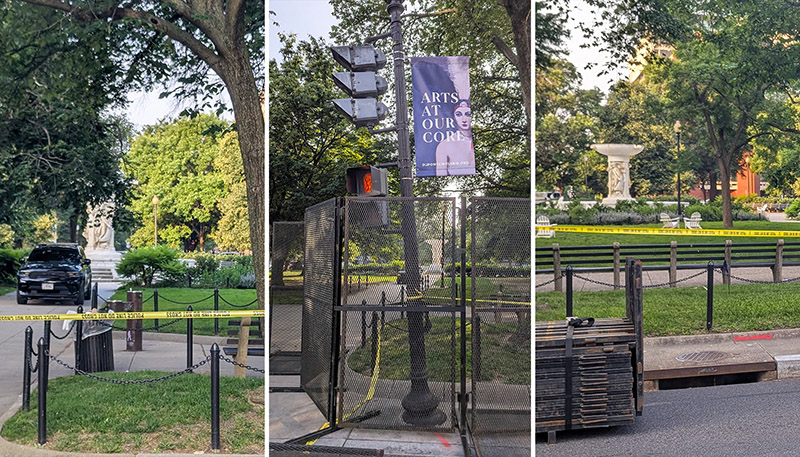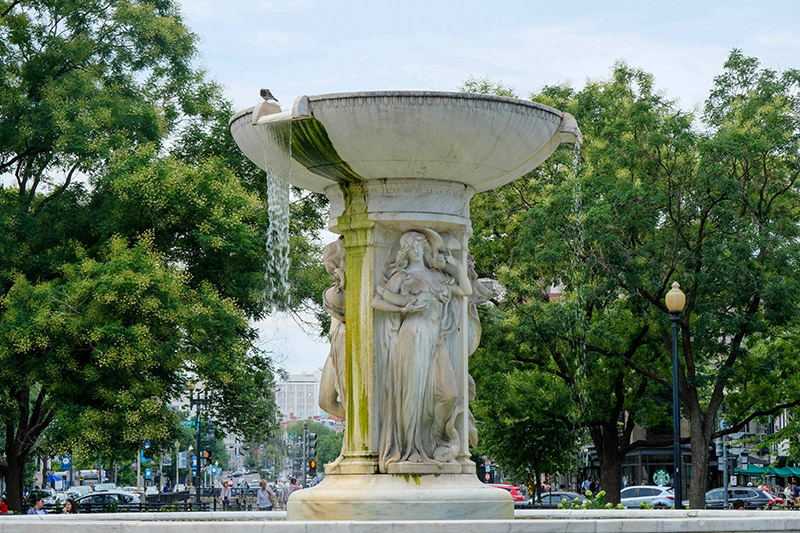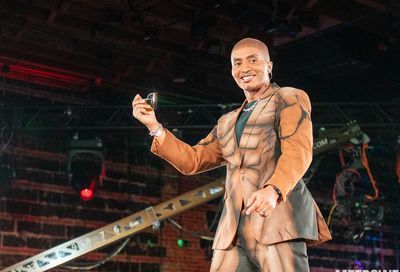National Park Service releases study of LGBTQ-related historic sites
Report examines LGBT sites for potential inclusion on National Register of Historic Places and as National Historic Landmarks

The National Park Service has released a “theme study” that attempts to identify places and events associated with the history of the nation’s LGBT community.
The release of the first-of-its-kind study on Tuesday coincided with National Coming Out Day, and is part of a broader initiative being undertaken by the U.S. Department of Interior to ensure that the National Park Service is adequately and accurately reflecting the history of minority groups and their contributions to the United States.
Historians hope the study — launched in 2014 — will highlight sites that might be considered for listing on the National Register of Historic Places or status as National Historic Landmarks.
“For far too long, the struggles and contributions of lesbian, gay, bisexual, transgender and queer-identified American have been ignored in the traditional narratives of our nation’s history,” Secretary of Interior Sally Jewell said in a statement. “This theme study is the first of its kind by any national government to identify this part of our shared history, and it will result in an important step forward in reversing the current underrepresentation of stories and places associated to the LGBTQ community in the complex and diverse story of America.”
As Megan Springate writes in the study’s introduction: “The importance of being seen and included in the nation’s ‘official’ histories represented by NRHP and NHL listings cannot be overstated. Studies show that when positive portrayal of populations (including LGBTQ, African Americans, Asian Americans, and Latinas/Latinos) are excluded from popular narratives (like cultural sites, television shows, museum exhibits, and textbooks), members of those groups suffer lower self-esteem.
“Seeing oneself as part of the story, as part of history, is important to feeling like part of a society — a sense of cultural belonging,” Springate continues. “The inclusion of ‘minorities’ in popular narratives also helps increase awareness and acceptance of diversity in broader society. Finally (paraphrasing Adrienne Rich), it is impossible to understand what heterosexuality means — both historically and individually — when people are kept ignorant of ‘the presence, the existence, the actuality’ of those who have centered their emotional, social, commercial, and erotic lives on those of the same sex (including bisexuals). This ignorance, anxiety, and silence — the absence of whole populations — is disempowering for all who seek to better represent the past and all who want to imagine a better future.”
Currently, there are 10 different sites related to LGBT history that are recognized by the National Park Service. In June, President Obama officially designated the Stonewall Inn as a the nation’s first monument dedicated to the LGBT community.
The Henry Gerber House in Chicago is recognized as a National Historic Landmark. Eight places are listed on the National Register of Historic Places, including two local sites: The Furies Collective, the first and only lesbian site to be listed on the register, located in Capitol Hill, and the Franklin E. Kameny House, in Northwest Washington.
“In 2016 the National Park Service is marking our centennial anniversary and the upcoming 50th anniversary of the National Historic Preservation Act on October 15 with a renewed commitment to share a more complete history of our nation with the next generation of Americans,” National Park Service Director Jonathan Jarvis said in a statement. “Through heritage initiatives like the LGBTQ theme study, the National Park Service is commemorating the inspiring stories of minorities and women who have made significant contributions to our nation’s history and culture.”
Support Metro Weekly’s Journalism
These are challenging times for news organizations. And yet it’s crucial we stay active and provide vital resources and information to both our local readers and the world. So won’t you please take a moment and consider supporting Metro Weekly with a membership? For as little as $5 a month, you can help ensure Metro Weekly magazine and MetroWeekly.com remain free, viable resources as we provide the best, most diverse, culturally-resonant LGBTQ coverage in both the D.C. region and around the world. Memberships come with exclusive perks and discounts, your own personal digital delivery of each week’s magazine (and an archive), access to our Member's Lounge when it launches this fall, and exclusive members-only items like Metro Weekly Membership Mugs and Tote Bags! Check out all our membership levels here and please join us today!


























You must be logged in to post a comment.